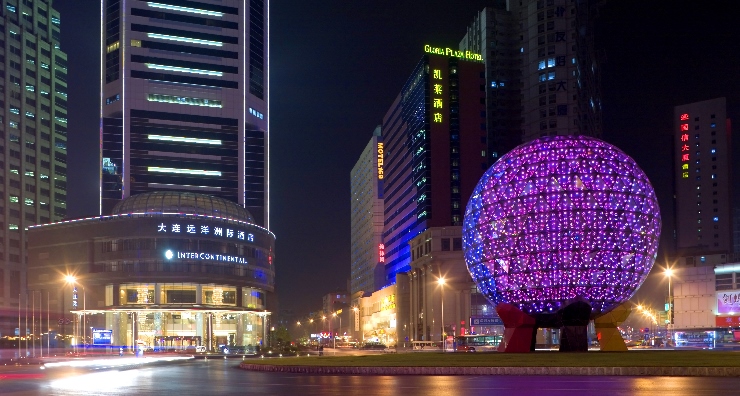Driving commercial and political engagement between Asia, the Middle East and Europe
Driving commercial and political engagement between Asia, the Middle East and Europe
Driving commercial and political engagement between Asia, the Middle East and Europe

There is no doubt that China is currently undergoing social and economic changes that will have a profound effect on both China and the world. Information sharing is one of the most far-reaching of these changes. Some sources estimate that the number of Chinese citizens using social media exceeds 600 million: that is half the population of the country.
Even though most of these social media users were prevented by censorship from reading about the recent Hong Kong democracy protests, the more tech-minded were able to circumvent the system by using virtual private networks. They belong to an increasingly sophisticated army of users of technology in this huge country.
Information Sharing
Despite one-party rule from Beijing, an educated, enquiring and restless middle class is emerging in China. For example, there is strong growth in citizen journalism, and more widely ‘information sharing’ – a tool with enormous capacity for influence and change. China is also emerging as a global leader in mobile services and devices.
Chinese internet giant Tencent (owners of WeChat), Chinese e-commerce company Alibaba, Chinese search engine Baidu and Chinese microblogging site Weibo are just some of the major Chinese players in the digital world. This robust and very powerful network of mobile technology and social media providers is influencing what consumers are talking about, how they get information, how they find entertainment, socialise, connect and shop. Such market competitive or cultural intelligence trends are all connected and present an extraordinary new challenge, as well as a tremendous opportunity for foreign firms.
Gone are the days all that was enough to succeed in China business was to understand the guanxi (relationships, networks, connections and favours) system, and show patience and commitment. These values remain highly important, especially in more traditional forms of business and for the middle-aged and older generation.
However, the new challenge – and opportunity – for Western businesses is to understand this emerging digital space and to use that understanding to identify what consumers are really talking about and needing.
China is experiencing tremendous growth in citizen journalism, and more broadly ‘information sharing’ – a tool with enormous capacity for influence and change, which must be more fully understood if it is to be successfully harnessed.
From Invention To Copying To Innovation
Thousands of years ago, China was a centre of invention and innovation – paper, gunpowder, the compass – but since opening up in the 1980s, China has built a reputation rather like that of Japan in those pre-boom years: as an imitator, stealer and integrator of Western intellectual property. Japan lost this reputation through genuine innovation. So far China has not.
Until recently, that is. According to veteran China business expert Shaun Rein in his new book, The End of Copycat China, most of the innovation is fairly incremental, or what he calls Stage 2 along the innovation curve. Chinese firms, he says, are innovating for China specifically and focusing on business model innovation rather than invention. But this is changing as real profits are to be made by focusing on innovation and as the legal climate gradually improves.
Rein points out that Steve Jobs at Apple did not really invent much — there were mobile phones and MP3 players long before the iPod and iPhone — but what made Jobs brilliant was his ability to improve on current offerings to meet unmet market demands. That, he says, is innovation at its finest and that is what Chinese firms are becoming good at.
Like Japan in the 1990s, Chinese entrepreneurs and venture capitalists have woken up to the fact that in order to grow and compete globally, they can no longer simply rely on copying Western countries’ technologies and business models. Instead, they have to build their own innovative products for the Chinese market, and eventually innovate for the global market.
The New Challenge
If you transpose this ‘awakening’ to the social and political sphere, it is hard not to think that China’s growing entrepreneurialism, the freer thinking of its social media users, the rising level of education and travel, and the effects of globalisation on both consumer industries and start-up/venture capitalists, will create an entirely new and exciting challenge both for the citizens of China and for foreign businesses.
For example, it is thought that many of the greatest advances in the world in biotechnology will stem from China.
Overall, the market is maturing in China, competition is intensifying, and companies are moving up the value chain. As they do so, many entrepreneurs are wondering how to be competitive, not through low costs, not through sales and distribution, but through innovation.
This is the challenge that foreign businesses face in China. It is no longer enough to learn the basic Confucian values and the nuances of business etiquette and different mind-set to get ahead in Chinese business. On the other hand, even though social media and innovative technologies are globalising forces, in China it is best to remember that everything comes “with Chinese characteristics”.
Innovation is no exception.
David Clive Price helps companies, SMEs and entrepreneurs to build highly lucrative partnerships and target their brands in Asia markets through local cultural knowledge and competitive intelligence.
To apply for a FREE 30-Minute Strategy Consultation with David Clive Price click here.
Asia House is hosting a Signature Conference, in partnership with Rio Tinto, which brings together world-class innovators for a stimulating discussion on the future of Asia as an innovation hub and the potential for increased transcontinental cooperation. To find out more about the ‘Partnering with Asia for global innovation’ conference, which takes place on 11 December, click here.
Asia House is on both WeChat and on Weibo. To find us on Weibo click here.
To find us on WeChat scan in this QR code using the QR reader on your smartphone.

The Asia House WeChat QR Code
